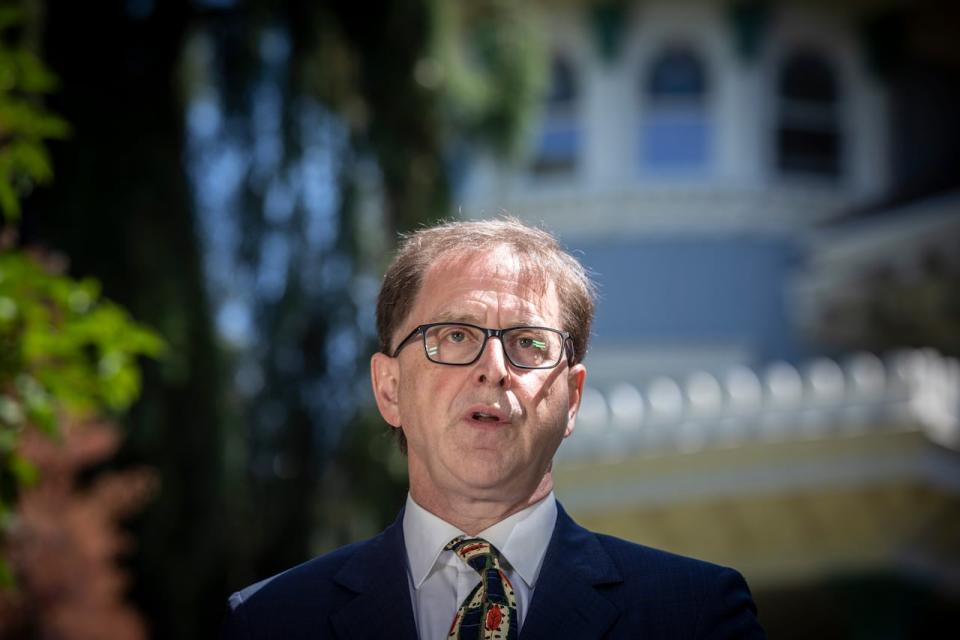New payment model has brought more family physicians to B.C., doctors say

One year after the British Columbia government introduced a new compensation model for family physicians, a B.C. family medicine practitioner says she is already seeing positive changes.
Dr. Robin Craven, a family physician in Oliver, B.C., told CBC News that changes to the payment model have alleviated some of the longstanding pressures on the province's health-care system, including a shortage of family doctors.
"I think [with] what the B.C. government has done…we are attracting physicians from other provinces," she said.
Craven, an internationally-trained doctor with a medical degree from St. George's University in Grenada, said the shift in billing practices has been a game-changer.
"You spend eight years in school ... you want to be able to pay your loan, but you want to be able to have a little comfort. And you can definitely do that in B.C. on this new contract," she added.
The new framework, called the longitudinal family physician (LFP) payment model, gives doctors the option to scrap the fee-for-service model, which paid them a flat rate of around $30 per patient visit, whether they're treating a simple common cold or a complex chronic health condition.
The LFP model, which was launched on Feb. 1, 2023, compensates doctors for the number of patients they see, the complexity of their needs, and the time spent on other necessary tasks like reviewing lab results, consulting with other medical professionals, updating patient lists and clinical administrative work.

The number of people without a family doctor in B.C. was about 895,000 in 2023. (CBC)
Dr. Renee Fernandez, executive director of B.C. Family Doctors, says there has been an increase in the number of doctors taking on family practice since the change.
"It's amazing how much progress can be achieved in a year," Fernandez said.
"What we're actually seeing is family doctors are staying in the system and we're seeing new family doctors join family practice for the first time in a generation."
She says there were 3,400 doctors practising longitudinal family medicine when the changes were introduced and there are now more than 4,100 family doctors practising in the province.
"The data is telling us ...this is working and this journey toward a high-performing primary care system is just beginning," she said.
Last year, the province reported there were 895,000 people in B.C. without a family doctor.
In a press conference last week, Health Minister Adrian Dix told CBC News the province has made progress in recruiting and retaining doctors since the payment model rolled out.

Health Minister Adrian Dix says the new LFP payment model for family doctors is helping recruit and retain physicians in BC. Dix pictured during a healthcare announcement on June 2, 2023. (Ben Nelms/CBC)
The province says it's adding more resources to train doctors in B.C. with plans to open a new medical school at Simon Fraser University, and add 128 medical seats at the University of B.C.'s Faculty of Medicine.
Fernandez says the payment model isn't a cure-all for B.C.'s family health-care system, but it has moved the needle in the right direction. She says more steps are needed to improve health care in the province.
One of those steps, she says, is to introduce a team-based approach that sees groups of doctors work with nurse practitioners, pharmacists, and social workers to create a high-functioning primary care system.
"In order to get there we have to implement team-based care in urban and rural geographies around the province," Fernandez said.


